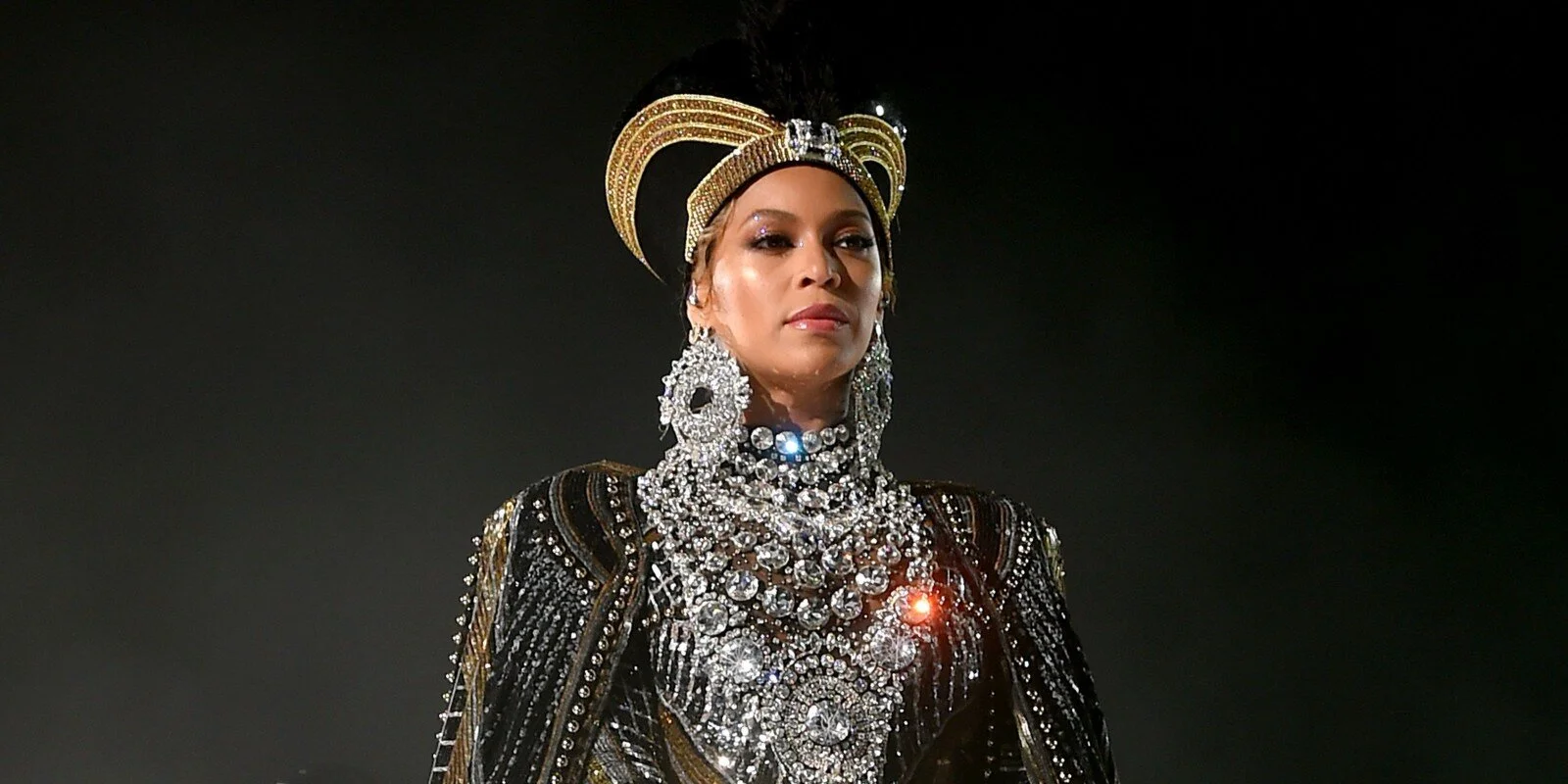I was having a conversation with a friend the other night when the topic of interest landed upon Beyonce’s new Netflix movie: Homecoming. The film is a detailed behind-the-scenes look at her Coachella performance spliced with home videos of the story and training leading up to the fateful night. During the viewing I found myself not terribly impressed with the celebrity singer’s journey, but what captured me was the response of her fans. In one scene, she throws a towel at this lucky (or unlucky?) person and he drops to the floor, screaming and writhing in pure ecstasy. This struck me as eerily similar to a church congregation as the signs of the Holy Spirit taking possession, which caused people to speak in tongues and convulse in epileptic shock. It was then I realized, that celebrity musicians have ascended beyond their fame and have become living, breathing deities for the masses.
Perhaps it started with chaotic“Beatlemania” movement during the 1960s, when the English rock band The Beatles stepped onto the scene and made waves as an international epidemic of super stardom. Since then, the impact of technology has evolved and sensationalized celebrities even further, allowing these new millennial musicians to take their fame to new heights.
BTS and Halsey
The God Gene Hypothesis
The is controversial hypothesis is based on a combination of behavioral, genetic, neurobiological and psychological studies. The idea was initially proposed by geneticist Dean Hamer in the 2004 book called The God Gene: How Faith is Hardwired into our Genes.The major tenants of the hypothesis are as follows:
Spirituality can be quantified by psychometric measurements
The underlying tendency to spirituality is partially heritable
This heritability can be attributed to the gene vesicular monoamine transporter 2(or VMAT2)
This VMAT2 gene acts by altering monoamine levels
Spirituality provides an evolutionary advantage by providing individuals with an innate sense of optimism.
As you can see, this hypothesis coincides with the necessary requirements for humans to develop a religion. Furthermore, the evolutionary origin or religion has been broken down into four prerequisites:
Tool Use — The manufacture of complex tools requires creating a mental image of an object which does not exist naturally before actually making the artifact. Furthermore, one must understand how the tool would be used, that requires an understanding of causality. For example, chimpanzees have been known to escape from pens closed with multiple latches, which was previously thought could only have been figured out by humans who understood causality. Chimpanzees are also known to mourn the dead, and notice things that have only aesthetic value, like sunsets, both of which may be considered to be components of religion or spirituality.
Increased Brain Size — the religious mind is one consequence of a brain that is large enough to formulate religious and philosophical ideas. During human evolution, the hominid brain tripled in size, peaking 500,000 years ago. Much of the brain’s expansion took place in the neocortex. The cerebral neocortex is presumed to be responsible for the neuronal computations underlying complex phenomena such as perception, thought, language, attention, episodic memory and voluntary movement.
Morality/Group Living — According to attachment and bonding, cooperation and mutual aid, sympathy and empathy, direct and indirect reciprocity, altruism and reciprocal altruism, conflict resolution and peacemaking, deception and deception detection, community concern and caring about what others think about you, and awareness of and response to the social rules of the group
Language Development — Like most behaviors that are found in societies throughout the world, religion must have been present in the ancestral human population before the dispersal from Africa 50,000 years ago. Although religious rituals usually involve dance and music, they are also very verbal, since the sacred truths have to be stated. If so, religion, at least in its modern form, cannot pre-date the emergence of language. It has been argued earlier that language attained its modern state shortly before the exodus from Africa. If religion had to await the evolution of modern, articulate language, then it too would have emerged shortly before 50,000 years ago.
A very regal ‘Queen Bey’ dressed in Egyptian goddess garb
But even if this is just a mere coincidence, let’s take a look at the fact that these famous bands and musicians have a notable following, in which their respective fans drum up a name to branch under exactly like religious denominations. Some of the names these new religious institutions have generated include:
A.R.M.Y. = BTS fans
The BeyHive = Beyonce fans
Arianators = Ariana Grande fans
The Navy = Rihanna fans
Team Drizzy = Drake fans
Juggalos = Insane Clown Posse fans
Swifties = Taylor Swift fans
Little Monsters = Lady Gaga fans
…are just to name a few, as the list goes on and on.
But what’s wrong with coveting a celebrity musician with that much love and adoration you ask? Well, nothing. However it could lead to following these ‘prophets’ with a fanatical zeal and creating a dangerous precedent in the world. For this example I am speaking of Kanye West. This rap legend is the very definition of a person who has thought to transcend into the heavenly realm (even if by his own delusion).
Kanye ‘Yeezus’ West during his Sunday Service
Unconvinced? Let’s see.
Kanye has the ability to reach large audiences with his gospel, much like the prophets of old. He performs a Sunday Service, is in talks of making his own church, and has taken it upon himself to create an album on praising the lord in ‘Jesus is King’ and ‘Yeezus’. But whether or not this is beneficial to the Christian community is another topic to revisit at a later date.
I am not denying his impact on hip hop or how his presence culturally revolutionized the rap game forever.
What I am saying is that Kanye West is a mentally ill person, who has been diagnosed with bipolar disorder and has struggled with a very open Messiah Complex. To follow someone like this with love and adoration that people give to their own sacred beliefs is unreal. In fact, it could almost considered cult-like.
But perhaps I should take off the tin foil hat. Maybe these new religious parallels could be something meaningless, drummed up by dystopian thoughts late in the evening.
We’ll just wait and see.


